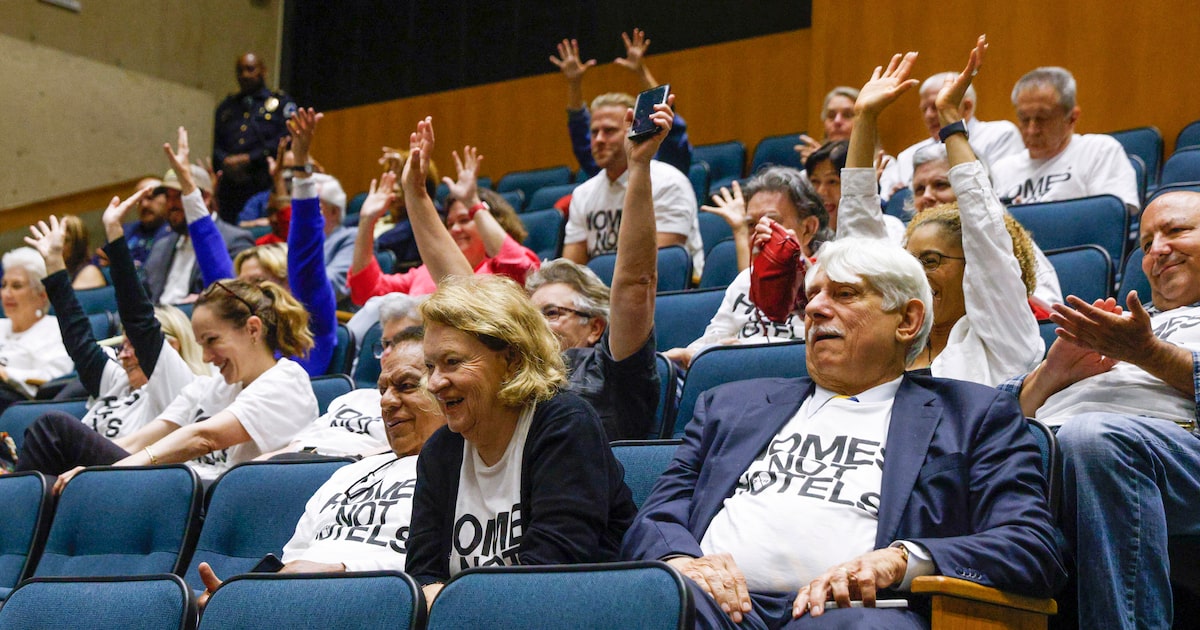As the FIFA World Cup draws closer, Dallas officials are asking the Texas Supreme Court to step into their legal fight against short-term rental operators.
Attorneys representing the city said in a court filing that the lower courts erred in blocking Dallas’ ability to prevent short-term rentals in single-family neighborhoods. They’re asking the court to lift the temporary stay placed on the city while the legal fight continues.
Their main argument states the city’s ordinances do not violate an operator’s property rights because they do not ban short-term rental operators from leasing their premises outright. City officials want to push short-term rentals from single-family residential neighborhoods to multifamily or commercial districts.
“Such error should not be allowed to stand on the eve of Dallas taking center stage for a world-wide sporting event — a time when STR regulation will be of utmost importance,” the court filing said.
Political Points
The issue began in 2023 when council members authorized two ordinances to regulate short-term rentals. This came after waves of residents raised concerns about limited housing stock, and shootings as well as noise from large parties in Dallas.
But short-term rental operators have said those cases represent a fraction of the businesses, and that while they were not against regulation, the city’s version was far more punitive than they expected.
The new law changed zoning rules to label short-term rentals as hotels and restricted the number of rentals per unit. It also revised city code to make it mandatory for property owners to register with the city annually, pay related fees and taxes, adhere to occupancy and noise limits, and have someone on file who can respond to the property within one hour to address any emergency.
It also lowered the count of strikes that triggered penalties from three to two. A provision states that a violation on one property would allow the city to close other registered properties an operator runs, operators argued.
Short-term rental operators ultimately sued and said the rules don’t just limit their operations; they shutter most of them.
Months later, a trial court sided with short-term rental operators, and a three-judge panel affirmed the ruling earlier in February. The city then asked for a rehearing of the entire 13-member appeals court to assess the panel’s decision, but that request was dismissed. In July, the appeals court doubled down on its previous opinion.
City officials have argued that they have a legitimate governmental interest in curbing short-term rentals. They argue that rentals drive up housing prices as they eat into the city’s limited housing stock and risk changing the character of a neighborhood.
In court and in City Council briefings, officials have said the legal fight prevents them from adequately enforcing rules on short-term rentals. They have also struggled to register operators to collect hotel occupancy taxes, which pay for arts and tourism.
Lisa Sievers, president of the Short-term Rental Alliance, said in a statement she’d hoped the city would move past the lawsuits and allow contractors to move forward and work on a “fair and reasonable” ordinance.
“Our goal has always been to work with the City on the serious business of putting a reasonable ordinance in place that represents the interests of our membership as well as the neighborhoods, in which we live and we look forward to the time when this process can begin,” she said, adding that in the meantime, operators were preparing for the onslaught of tourists by holding a series of classes for new short-term rental hosts on how to responsibly host rentals.

